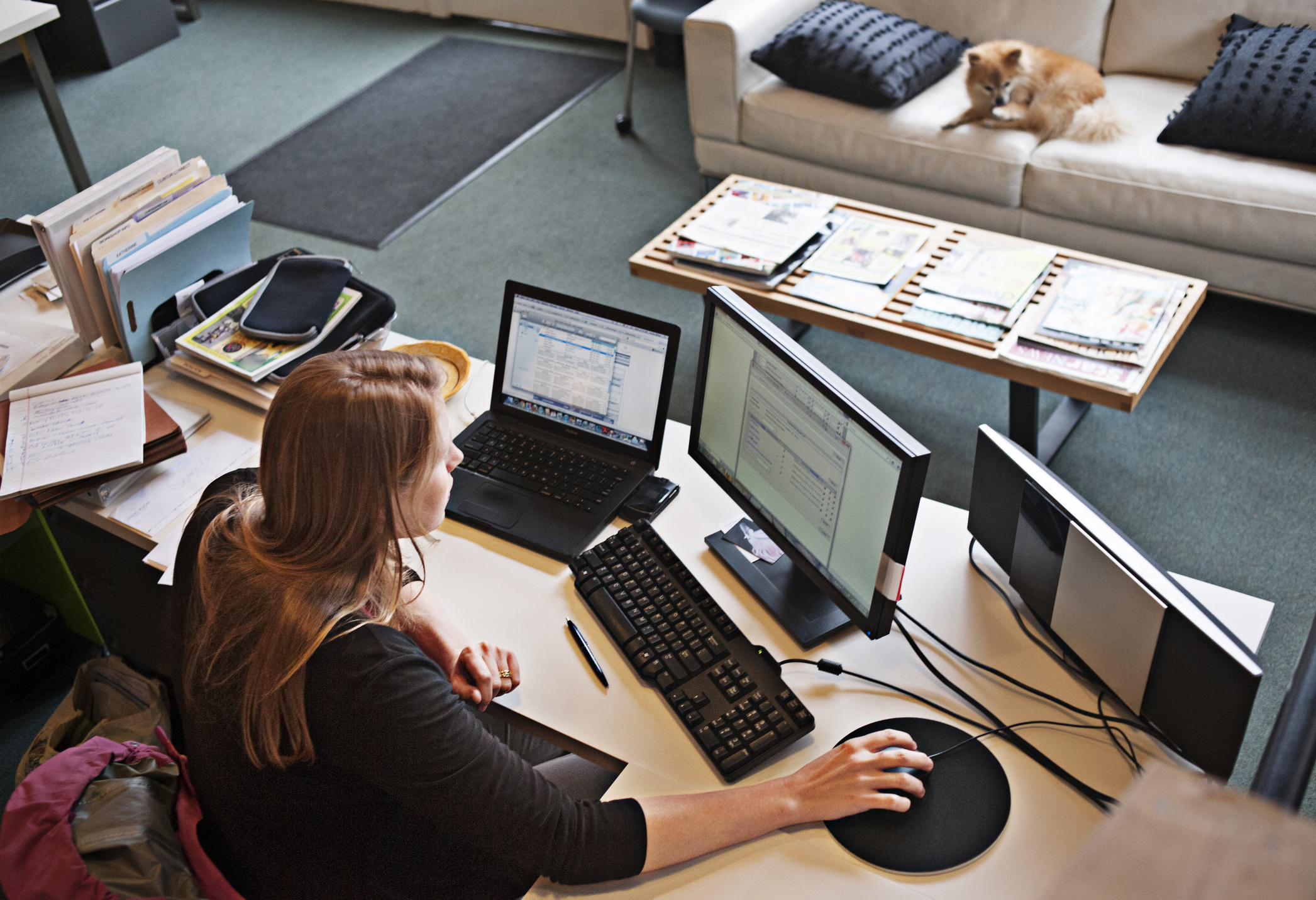When does the work from home rule end in the UK?


When does the work from home rule end in the UK? Now Prime Minister Boris Johnson has laid out plans for learning to "live with Covid", many are wondering if they'll have to head back into the office soon.
Before the symptoms of Omicron came to light as a new variant, many people were slowly trickling back to working from the office. A sign of a slow return to somewhat normality, research from the Office for National Statistics (ONS) suggested that the seven in 10 people who were going back in November 2021 relished the chance to be working somewhere different. But with a spike in cases, the government enabled Plan B and we went back into lockdown of sorts - with restrictions on working from outside the home.
Now lifted under Plan A measures, another return to the office sounds promising for those keen to return to their new routine. But the rules set by the British government don't apply everywhere in the UK when it comes to Covid-19, so this is what you need to know.
When does the work from home rule end in England?
The work from home rule is now over in England, following the PM's statement to the House of Commons on January 19. This means that from January 20, anyone who doesn't want to work from home doesn't have to - provided their office is open.
Mr Johnson said, "From now, the government is no longer asking people to work from home and people should now speak to their employers about arrangements for returning to the office."
As well as scrapping the work from home guidance, the prime minister announced that there was no need to prove a double vaccination to access entertainment venues. He also confirmed that people could stop wearing face masks in many public places as all Plan B measures, put in place during the Omicron spike in December, were coming to an end.
"Today’s latest ONS data show clearly that infection levels are falling in England," he said. "And while there are some places where cases are likely to continue rising, including in primary schools – our scientists believe it is likely that the Omicron wave has now peaked nationally."
GoodtoKnow Newsletter
Parenting advice, hot topics, best buys and family finance tips delivered straight to your inbox.
When Plan B restrictions were in place, the guidance changed to encourage those who could work from home to do so again. However, many offices remained open during this time, having been closed for all three of the previous lockdowns.
When does the work from home rule end in Scotland?
The work from home rule is expected to end at the beginning of February. It's very much still in place for the moment though, with First Minister Nicola Sturgeon suggesting that Scotland will return to a "more hybrid approach" from the beginning of next month.

She said that Scotland was "once again entering a calmer phase of the pandemic" but there was still "significant pressure" on the health services due to the most recent wave of coronavirus.
Official guidance on the Scottish government's website reads, "From 17 December 2021, by law, businesses, places of worship and service providers must take reasonable measures to minimise the risk of the incidence and spread of coronavirus. Supporting employees to work from home where possible, is an important part of that."
When does the work from home law end in Wales?
The requirement to work from home in Wales, put into law last year, will come to an end on January 28 2022. Unlike other countries, Wales put their working from home requirement into law. From this late January date, it will move to become guidance.
Although, the government have stressed that this is by no means an encouragement to return to the office and staff should not be "required or placed under pressure to return" after this date unless there is a strong business need.
Official guidance says that from January 28, "working from home remains important but moves from law to guidance". Also from this date in Wales:
- Nightclubs will be able to open again
- Covid passes won't be required for large indoor events, nightclubs, cinemas, theatres and concert halls
- There will be no restrictions on meeting people
- No requirement on table service in hospitality venues, or the need to keep a 2 metre physical distance.
This means that those who want to work from an office should be able to do so, under the approval of their workplace.
While there is some skepticism that lateral flow tests could produce a false negative or positive, this is unlikely. All four nations of the UK have urged people to continue testing regularly and take up their booster jab to continue reducing the spread of the virus.
When does the rule end in Northern Ireland?
The advice in Northern Ireland is to work from home where possible.
Back in November last year, Health Minister Robin Swann said he believed that anyone who was working from home should do so again. But he recognised that not all employers had the facilities to continue this situation for much longer.

So while the working from home guidance in Northern Ireland has been reiterated by the executive, it's not the law.
However, businesses must adhere to a legal requirement to ensure there's a 2m social distance in the workplace. And where this cannot be achieved, the business must help enforce other mitigations to reduce the spread of the virus.
Can I still work from home if I want to?
If you want to work from home after the guidance has been lifted, you should talk to your employer.
The prime minister has scrapped all the requirements to work from home. Now employers have the power to dictate whether it's compulsory for staff to be in the office at work, or if they can work from home as they have been doing.
But while the government has removed limitations, some employers have been told they must have measures in place to protect employees. This includes requirements like keeping offices well ventilated.
Anyone employed for at least 26 weeks by a company also has the right to request flexible working. This can include a request to work from home. Employers are required by law to handle these applications in a "reasonable manner" and if it's found that they haven't done so, the employee can take them to an employment tribunal.
These requests can naturally be turned down by employers, however, if there is a suitable reason. For example, if there are security risks associated with working from home.

Grace Walsh is a health and wellbeing writer, working across the subjects of family, relationships, and LGBT topics, as well as sleep and mental health. A digital journalist with over six years experience as a writer and editor for UK publications, Grace is currently Health Editor for womanandhome.com and has also worked with Cosmopolitan, Red, The i Paper, GoodtoKnow, and more. After graduating from the University of Warwick, she started her career writing about the complexities of sex and relationships, before combining personal hobbies with professional and writing about fitness.